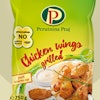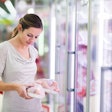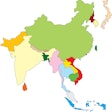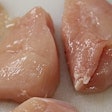Golden Oval Eggs, LLC’s net sales for the first fiscal quarter 2007 ended Nov. 30 were $48.6 million, an increase of $29.6 million, or more than 2.5 times the first quarter in the prior fiscal year. Net income, however, showed a loss of $3.7 million compared to a gain of $1.6 million the same quarter ended the prior year, the company reported last month.
Both sales and income were heavily influenced by Golden Oval’s MoArk acquisition, completed in the fourth quarter of fiscal 2006. Pounds sold in the first quarter were 107.3 million, an increase of 55.7 million, or 107.8% over the same period a year earlier. Pounds from the acquired MoArk facilities accounted for 95.5% of the increase, with the additional production gained from completion of the last stage of construction at Golden Oval’s Thompson, Iowa facility.
The average selling price per pound sold increased from 34 cents to 43 cents, an increase of 26%, as a result of selling further processed products from the acquired facilities at higher average selling prices than first stage products.
Cost of goods sold was $44.4 million, an increase of 192% compared to the first quarter of fiscal 2006, due primarily to the inclusion of MoArk.
Golden Oval says that it expects revenues in the second and third quarters of fiscal 2007 to increase substantially compared to prior year periods as a result of the MoArk acquisition.
In other egg company financial news last month, Cal-Maine Foods, Inc. reported net sales for the second quarter of fiscal 2007 of $137.7 million, just shy of the $138.3 million for fiscal 2006. Net income, however, was $6.4 million this year compared to a net loss of $685,000 in 2006.
For the first six months of fiscal 2007, the company reports net sales of $253 million compared to $218 million the prior year, and net income of $970,000 for the first half of fiscal 2007 compared to a net loss of $8.8 million for the year-earlier period.
Fred Adams, chairman and CEO of Cal-Maine, said that “supplies of eggs were adequate but tight enough to allow strong price increases during the last few weeks of the quarter. We started the third quarter with profitable prices that continued through the Christmas holiday season. Feed costs continue to be high due to demand for ethanol, but we believe higher egg prices will more than offset the increase in feed costs in the year ahead.”


















